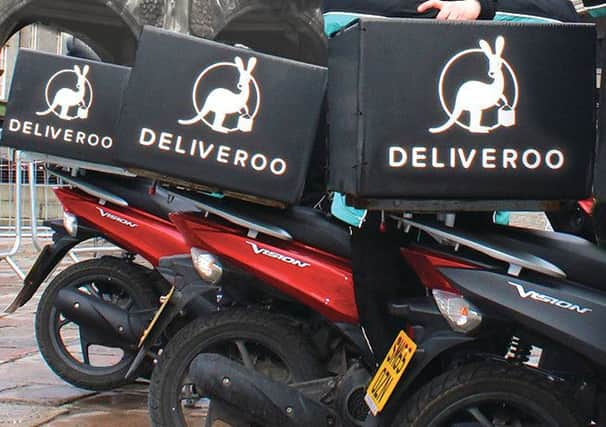Andrew Clark: Employment law cannot be a pick and mix menu


Deliveroo is the latest company in the “on-demand” economy (where consumers are matched with service providers directly and on-demand) to run into employment law problems. Following a strike at the end of last week, the restaurant food delivery service has reportedly been told by the Government that it cannot opt out of paying the minimum wage by simply defining their staff as self-employed.
Deliveroo is not the first to run into this sort of problem. Last year, I speculated that Uber might be challenged on the classification of its UK drivers as self-employed and in July, the Employment Tribunal in London heard arguments on exactly that point in two test cases. In April, a group of four cycle couriers in London crowdfunded their own employment tribunal claim, arguing for the greater protection afforded by employee or worker status.
Advertisement
Hide AdAdvertisement
Hide AdThe problem of employment status is certainly not confined to this on-demand economy but such companies often rely on the flexibility afforded by new technology. Continual advances in technology are driving dramatic changes in how we live and work. More and more, the alternatives to the traditional 9-5 are not only possible but are actually preferable to both employers and employees.
For new tech start-ups, this is not something they can really afford to get wrong. Although Deliveroo is set to join the likes of Uber, Snapchat and Airbnb as a ‘unicorn’ (a start-up now valued at over $1 billion), it has had to back down from the proposed changes to pay and apologise to its workforce. Their chief executive acknowledged: “Our riders are the life blood of our business and without them we are nothing.”
Inevitably, at some point in the life of a start-up, a decision will have to be taken to either take on staff or to source manpower and expertise from contractors. Both have pros and cons.
While employees can be expensive, they provide much greater certainty in knowing what resources are available and when. Employment should guarantee personal service – the person whose particular skills you want will be the one actually doing the work – and gives you greater control over how and when tasks are carried out. Employees are entitled to the full suite of legal rights (including pay, hours, holidays, notice and protection from dismissal).
On the other hand, self-employed contractors are likely to only have protection from discrimination. This will mean fewer statutory obligations for employers, but it gives companies much greater flexibility. There is no obligation to provide work; you can use these contractors as much or as little as you like to match market demand. The flipside is that contractors are free to refuse work and are more likely to be able to appoint substitutes to fill in.
Deciding what is best for your business and staff will involve a careful balancing exercise. Hiring your first member of staff is an exciting milestone, but if you decide to take on employees you should ensure that the contract of employment is appropriate for your business. Flexibility, confidentiality, restrictive covenants and intellectual property are all points to be taken into account.
• Andrew Clark is an employment solicitor at Burness Paull.